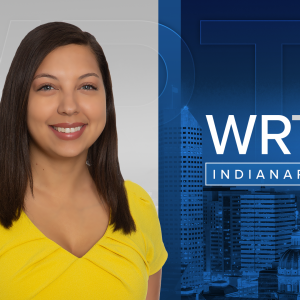INDIANAPOLIS — Within a couple of weeks, patients battling COVID-19 at Indiana University Health hospitals have dropped from 600 to around 250 people.
It's part of a larger trend that doctors say they expect to continue as the omicron variant makes its way out of central Indiana.
"The omicron variant starts to fizzle out at this time I believe," said Dr.Ram Yeleti, chief physician executive for Community Health.
Yeleti said COVID-19 cases across all Indianapolis hospitals are dropping significantly. Hospitals are still full, but with patients needing surgeries and other procedures.
MORE | 'The pandemic will end, but COVID isn't going away': IU Health provides COVID-19 update
"I think it's getting to be very safe. I won't say the risk is zero, but I think it's a very comfortable risk very similar to a risk of a cold, virus or flu virus not related to the coronavirus," said Dr. Yeleti.
Dr. Michele Saysana, a pediatrician with IU Health, said that while it's a step forward in the right direction, we aren't out of the woods yet.
"I don't know that we know how close we are to endemic to be honest. We just came off a surge that was pretty significant; significant to any other surge," she said.
Dr. Chris Weaver with IU Health says COVID-19 will still have an impact on daily lives.
MORE | More than 1,600 students test positive for COVID-19 in Indiana schools
"The pandemic will end, but COVID is not going away," said Weaver. "We will see it stay around or less like the yearly flu. We don't know how it will play out yet," he said.
The Indiana State Department of Health recently loosened restrictions in schools by no longer requiring contact tracing or reporting positive cases, or quarantining.
Several districts have also dropped mask mandates.
"Do I have concerns? Not as many as I had on early on. Do I think we have to be careful? Absolutely," said Dr. Michele Saysana.
MORE | Rental car company issues $1K surcharge to Fishers man in COVID-19 predicament
Doctors say they're comfortable with these decisions and that the path forward is now up to people making smart decisions, staying home when sick and taking extra precautions when needed.
"If you are not in a high-risk category and you are vaccinated, it's reasonable to not be quite as strict. It's okay to reduce the mask at times. It's okay to try and get back to normal living. The only time to be extra cautious is if you are going to be around people high risk or not vaccinated," said Dr. Yeleti.
Doctors say elective procedures are finally starting to ramp up after re-starting.
They expect to spend the next three to nine months catching up on the backlog of patients.
-

Biden, Xi to meet in Peru as US-China relations tested again by Trump’s return
President Joe Biden and China’s Xi Jinping were set to meet in Peru as U.S.-China relations were tested again by Donald Trump’s return to the White House with a vow to slap tariffs on imports.
President-elect Donald Trump picks Rep. Matt Gaetz to be next attorney general
President-elect Donald Trump picked Rep. Matt Gaetz to be the next attorney general. Gaetz submitted a letter of resignation to the House on Wednesday.2 dead and others hurt after explosion at a business in Louisville, Kentucky
Two workers were killed in a massive explosion at a commercial facility in Louisville, Kentucky, Tuesday afternoon – the same site where a deadly blast happened over two decades ago.
Indianapolis Opera pays homage to its past with ‘The Barber of Seville’
The Indianapolis Opera will present Rossini's “The Barber of Seville” later this month. It is the most performed opera in the company's history.





